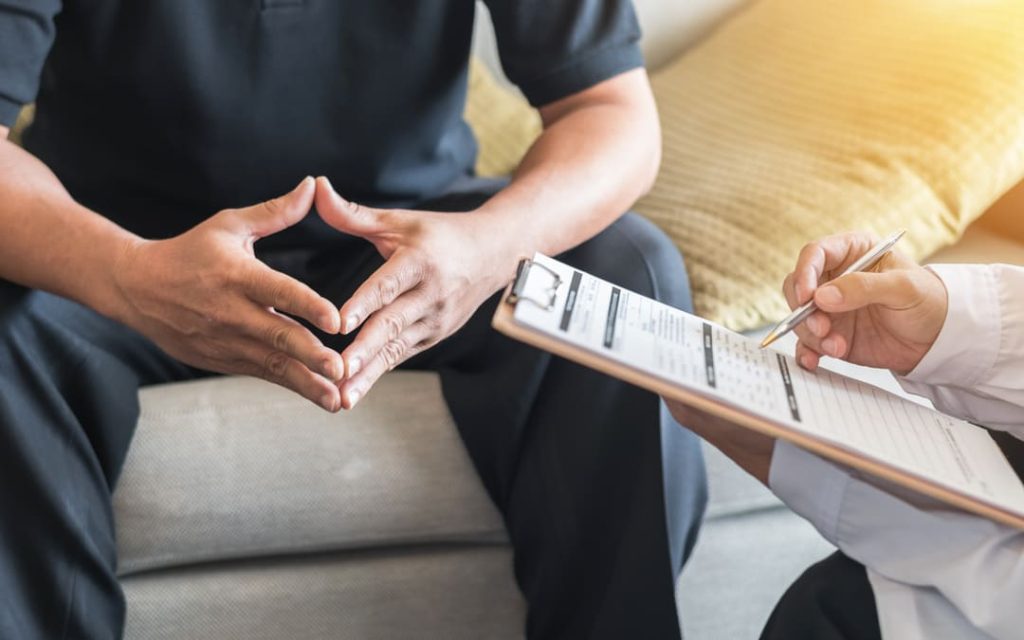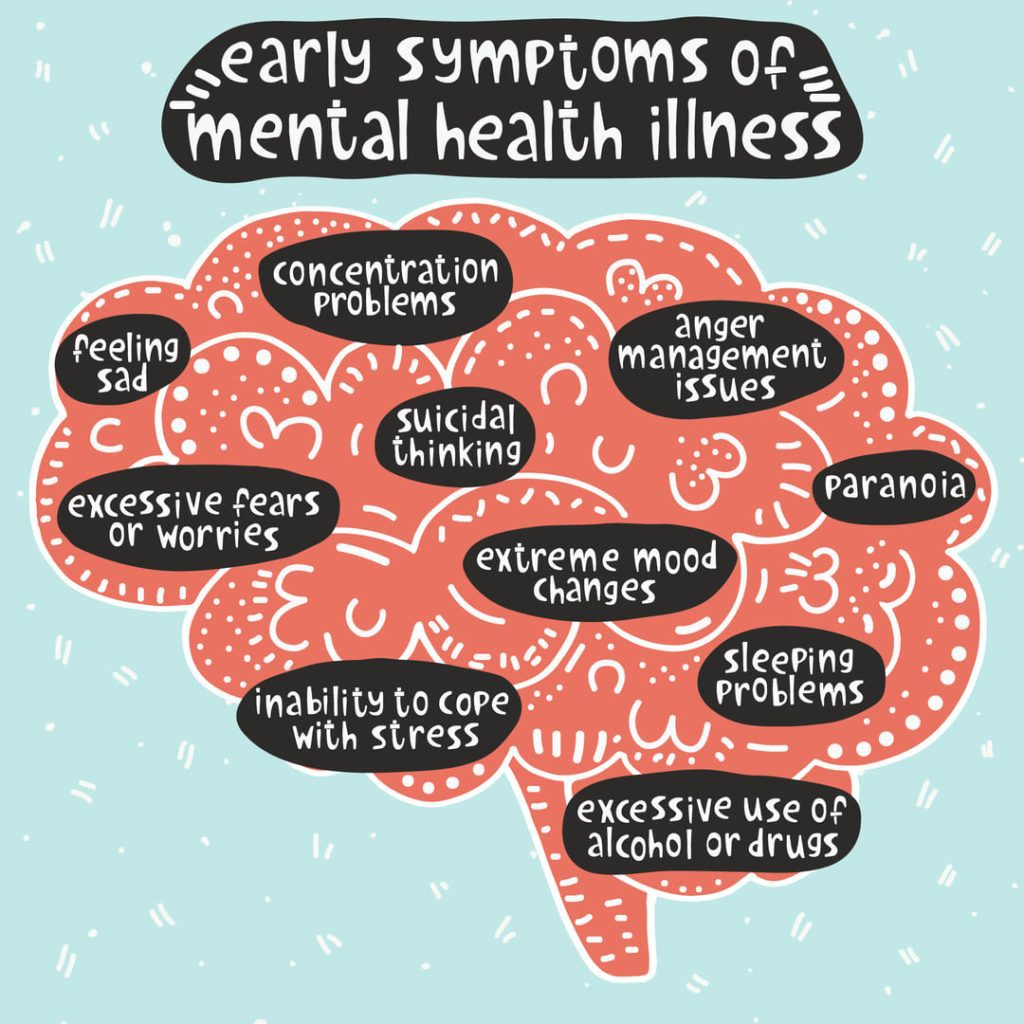If you’re a veteran struggling with mental health issues, you may have heard of GAF and WHODAS 2.0. These acronyms stand for Global Assessment of Functioning (GAF) and the World Health Organization Disability Assessment Schedule 2.0 (WHODAS 2.0). They are both tools used to assess mental health.
The VA replaced GAF with WHODAS 2.0 in 2015, so it’s essential to understand where you fall in these assessment systems.

You DESERVE a HIGHER VA rating.
WE CAN HELP.
Take advantage of a FREE VA Claim Discovery Call with an experienced Team Member. Learn what you’ve been missing so you can FINALLY get the disability rating and compensation you’ve earned for your service.
What is a GAF Score?
GAF stands for Global Assessment of Functioning. GAF scores were previously used to measure the functional ability of a veteran with a mental health condition.
Examples of mental health conditions that qualify for VA disability ratings using the GAF score (and now WHODAS 2.0) include:
- PTSD
- Depression
- Anxiety
- Bipolar disorder
- Schizophrenia, delusional disorder, and other psychotic disorders
- Phobias
- Panic disorder
- Somatic symptom disorders
Under the GAF score system, you were rated on your overall psychological, social, and occupational functioning on a scale from 0-100.
This score assessed your symptoms and behavior in different areas, such as work or school performance, relationships with family or friends, ability to take care of yourself physically or emotionally, etc. The lower your GAF score, the greater your impairment.
For example, a score between 60-69 might indicate mild symptoms, while a score between 10-20 would indicate severe symptoms. However, this practice has stopped because the score varies. Two doctors can give different scores to the same veteran depending on their interpretation.
GAF originated from the Diagnostic and Statistical Manual of Mental Disorders (DSM), which is the handbook used by healthcare professionals as the authoritative guide to diagnosing mental health disorders. While some doctors still use GAF, the most recent update to the DSM removed GAF from the manual and replaced this section with WHODAS 2.0.

What is WHODAS 2.0?
WHODAS 2.0 stands for World Health Organization Disability Assessment Schedule 2.0. This assessment is a more modern, patient-centered system. It focuses on the impact of mental health issues on everyday life and functioning rather than just symptoms and behaviors, as GAF did.
The purpose of WHODAS 2.0 is to provide an accurate measure of physical, mental, and social functioning. This help doctors assess the level of disability in veterans who require services from the VA or other healthcare providers.
The six different domains under WHODAS 2.0 used as indicators of functioning are:
- Cognition – Thinking and communicating, including concentrating, remembering problem-solving, and learning
- Mobility – Standing, moving around in your home, walking distances
- Self-care – Hygiene, dressing, eating
- Getting along – How you interact with others, including close family and strangers
- Life activities – Including work, school, and leisure
- Participation – Barriers and hindrances to community activities
Like a GAF score, a WHODAS score is a 100-point scoring system to rate your functioning. However, the score is the opposite. The higher your score on WHODAS 2.0, the worse your mental health impacts your life.
Your WHODAS 2.0 score also provides an objective way to measure progress over time. This way, your doctor can accurately gauge if your treatment plans are effective or if adjustments are needed to provide better care.
Why is the VA switching from GAF to WHODAS 2.0?
The VA began using WHODAS 2.0 because the GAF model is highly subjective. One doctor may rate you significantly higher or lower on the GAF scale than the next. On the other hand, WHODAS 2.0 is meant to be more objective, and your score should be similar even if different doctors rate you.
How do GAF and WHODAS 2.0 Compare?
GAF scores are not directly comparable to WHODAS 2.0 scores since they measure different things. It’s crucial to understand how each assessment tool works when putting together your VA disability claim.
However, the VA will consider both of these scores when making a VA disability rating decision.

How You’ll be Assessed Using WHODAS 2.0
Under the new WHODAS 2.0 model, you can expect to fill out a 36-question survey that asks you questions about how well you function in daily life with your mental health condition.
Below is a list of all the questions you could be asked, broken down by functional area. You’ll be asked to rate each question from 1 to 5, where 1 is no impairment and 5 is extreme impairment or can’t do.
Cognition
In the past 30 days, how much difficulty did you have in:
- Concentrating on doing something for ten minutes?
- Remembering to do important things?
- Analyzing and finding solutions to problems in day-to-day life?
- Learning a new task, for example, learning how to get to a new place
- Generally understanding what people say?
- Starting and maintaining a conversation?
Mobility
In the past 30 days, how much difficulty did you have in:
- Standing for extended periods such as 30 minutes?
- Standing up from sitting down?
- Moving around inside your home?
- Getting out of your home?
- Walking a long distance, such as a half mile
Self-Care
In the past 30 days, how much difficulty did you have in:
- Washing your whole body?
- Getting dressed?
- Eating?
- Staying by yourself for a few days?
Getting Along
In the past 30 days, how much difficulty did you have in:
- Dealing with people you do not know?
- Maintaining a friendship?
- Getting along with people who are close to you?
- Making new friends?
- Sexual activities?
Life Activities
Because of your health condition, in the past 30 days, how much difficulty did you have in:
- Taking care of your household responsibilities?
- Doing most important household tasks well?
- Getting all the household work done that you needed to do?
- Getting your household work done as quickly as needed?
- Your day-to-day work/school?
- Doing your most important work/school tasks well?
- Getting all the work done that you need to do?
- Getting your work done as quickly as needed?
Participation
In the past 30 days:
- How much of a problem did you have joining in community activities (for example, festivities, religious or other activities) in the same way anyone else can?
- How much of a problem did you have because of barriers or hindrances in the world around you?
- How much of a problem did you have living with dignity because of the attitudes and actions of others?
- How much time did you spend on your health condition or its consequences?
- How much have you been emotionally affected by your health condition?
- How much has your health been a drain on the financial resources of you or your family?
- How much of a problem did your family have because of your health problems?
- How much of a problem did you have in doing things by yourself for relaxation or pleasure?
Your answers to these questions will enable your provider to compute your score.
Doctors use this score to evaluate your functioning in your current environment. The key here is that the score is intended to objectively assess how you’re functioning in your day-to-day life when the score is assigned.
For many veterans, this assessment happens during your Compensation & Pension (C&P) exam. We discuss more tips for your C&P exam below. Remember that WHODAS 2.0 scores can vary over time depending on various factors, such as your current symptoms, treatment interventions, and overall coping abilities.
The GAF Score Scale
You may have received a GAF score in the past. If you did, your score would correspond to one of the ten categories listed below.
While understanding your GAF score can be helpful, remember you’ll most likely be rated under the new WHODAS 2.0 system.
GAF score from 91 to 100
You have superior functioning in a wide range of activities. This score reflects an exceptional ability to cope with the demands of everyday life.
GAF score from 81 to 90
This score indicates you function well in all areas, such as relationships and social interactions. There are minimal symptoms present, and there is no major impairment in functioning.
GAF score from 71 to 80
You can function adequately with only mild symptoms or minimal signs of impairment.
GAF score from 61 to 70
You have some mild symptom intensity, difficulty carrying out tasks, or difficulty dealing with stress. Overall you function well.
GAF score from 51 to 60
You show moderate symptoms and signs of impairment in social functioning and work activities.
GAF score from 41 to 50
You have serious difficulties in multiple areas that significantly interfere with your ability to function socially.
GAF score from 31 to 40
Your communication or sense of reality may be somewhat impaired. Or, you have impairment in several areas.
GAF score from 21 to 30
You show extreme functional impairment and have difficulty carrying out the simplest tasks. Your judgment is impaired. Your behavior may be influenced by hallucinations.
GAF score from 11 to 20
You are seriously disabled, unable to maintain minimal personal hygiene or perform any activities of daily living on your own. There’s some danger to yourself and others.
GAF score from 1 to 10
This score reflects a state of chronic incapacitation, with only slight contact with reality. This score indicates you are in an extremely serious condition and requires round-the-clock care, constant supervision, or hospitalization. You are at constant risk of hurting yourself or others.

How does the VA use GAF and WHODAS 2.0 to rate you?
Keep in mind that the VA uses WHODAS 2.0 scores to help determine your VA disability rating for mental health conditions. However, these scores are only one factor in your rating. Your medical records, service treatment records, and additional evidence relevant to your claims such as an Independent Medical Opinion (IMO) or a medical nexus letter are all considered when the VA decides on your disability rating.
If you’re suffering from a mental disorder, you could be rated at 0%, 10%, 30%, 50%, 70%, or 100%. Your rating depends upon the frequency and severity of your symptoms.
The VA uses a General Rating Formula for Mental Disorders to assign a VA rating once the VA has determined that your condition is service-connected. The formula will rate you at one of these levels:
- 100% – Total occupational and social impairment
- 70% – Occupational and social impairment, with deficiencies in most areas
- 50% – Occupational and social impairment with reduced reliability and productivity
- 30% – Occupational and social impairment with occasional decrease in work efficiency and intermittent periods of inability to perform occupational tasks
- 10% – Occupational and social impairment due to mild or transient symptoms which decrease work efficiency and ability to perform occupational tasks only during periods of significant stress
- 0% – A mental condition has been formally diagnosed, but symptoms are not severe enough either to interfere with occupational and social functioning or to require continuous medication
There is no way to translate your WHODAS score directly into a specific VA disability rating.
However, on February 15, 2022, the VA proposed changes in the Mental Disorder ratings in order to update it to better reflect modern treatments, understandings, and functional disabilities resulting from Mental Disorders. Research has shown that the current system does not properly compensate veterans for the loss of earning capacity, so the changes are also designed to more fairly and completely compensate veterans based on a more accurate measurement system.
*Proposed: The Psychological Rating System
- A 100% rating is given if a Level 4 is given in one or more domains or if a Level 3 is given in two or more domains.
- A 70% rating is given if a Level 3 is given in one domain or if a Level 2 is given in two or more domains.
- A 50% rating is given if a Level 2 is given in one domain.
- A 30% rating is given if a Level 1 is given in two or more domains.
- The minimum rating for any diagnosed Mental Disorder is 10%.
All the domains under WHODAS 2.0 are evaluated based on symptoms present over the past month. They would compare the criteria for each domain to the levels of impairment to assign a level to each of the 5 domains. Afterwhich, they use these domain levels to assign a rating based on the ratings noted above.
- Level 4. Total impairment 25% or more of the time.
- Level 3. Severe impairment 25% or more of the time, or total impairment less than 25% of the time.
- Level 2. Moderate impairment 25% or more of the time, or severe impairment less than 25% of the time.
- Level 1. Any mild impairment, or moderate impairment less than 25% of the time.
- Level 0. No impairment.
However, you can read more about what specific symptoms generally correspond with VA ratings in our article on our Top 7 Mental Health Tips. For instance, if you’re dealing with suicidal ideations, you’ll at least be rated at 70%.
GAF and WHODAS 2.0 Do Not Address Service Connection
These scores only address how you function. They overlook a critical piece of the VA claims process: service connection. Using other methods, you must establish a service connection for your mental health condition.
To learn more on specific tips for getting your PTSD service-connected, read our guide to PTSD stressors.
GAF and WHODAS and Your C&P Exam
At a C&P exam, your examiner will ask questions that correspond to either GAF or WHODAS. Your provider will most likely ask questions from the WHODAS 2.0 36-question test. They will also probably fill out a Disability Benefits Questionnaire (DBQ), which helps them record all the information to decide on your claim. Start thinking about your symptoms and how they apply to each of the six WHODAS 2.0 categories.
Remember, GAF and WHODAS 2.0 scores provide helpful information when assessing your mental impairment. Still, they’re just one of many components that may be used to evaluate mental health conditions and make VA disability ratings.
If you believe you’re underrated, please contact us. Expert Veteran Coaches at VA Claims Insider are available to help you earn the VA rating you deserve.

NEED MORE ASSISTANCE?
Most veterans are underrated for their disabilities and, therefore, not getting their due compensation. At VA Claims Insider, we help you understand and take control of the claims process, so you can get the rating and compensation you’re owed by law.
Our process takes the guesswork out of filing a VA disability claim and supports you every step of the way in building a fully-developed claim (FDC)—so you can increase your rating FAST! If you’ve filed your VA disability claim and have been denied or have received a low rating—or you’re unsure how to get started—reach out to us! Take advantage of a FREE VA Claim Discovery Call. Learn what you’ve been missing—so you can FINALLY get the disability rating and compensation YOU DESERVE!

Trisha Penrod
Trisha Penrod is a former active-duty Air Force officer. As an Intelligence Officer, she led teams of analysts to apply advanced analytic skills to identify, assess, and report potential threats to U.S. forces.
Trisha attended the U.S. Air Force Academy and holds an MBA from Webster University. After receiving an honorable discharge in 2018, Trisha worked as a growth marketer and utilizes her analytic skills to help others accomplish their business goals.



